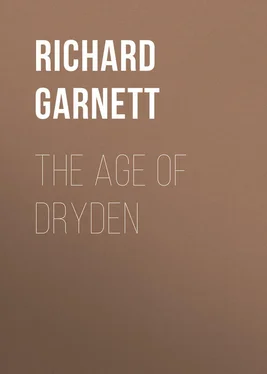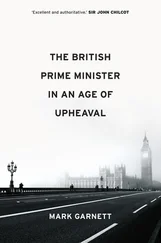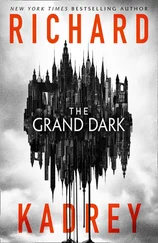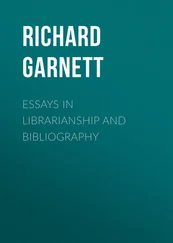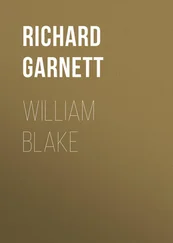Richard Garnett - The Age of Dryden
Здесь есть возможность читать онлайн «Richard Garnett - The Age of Dryden» — ознакомительный отрывок электронной книги совершенно бесплатно, а после прочтения отрывка купить полную версию. В некоторых случаях можно слушать аудио, скачать через торрент в формате fb2 и присутствует краткое содержание. Жанр: foreign_antique, foreign_prose, на английском языке. Описание произведения, (предисловие) а так же отзывы посетителей доступны на портале библиотеки ЛибКат.
- Название:The Age of Dryden
- Автор:
- Жанр:
- Год:неизвестен
- ISBN:нет данных
- Рейтинг книги:4 / 5. Голосов: 1
-
Избранное:Добавить в избранное
- Отзывы:
-
Ваша оценка:
- 80
- 1
- 2
- 3
- 4
- 5
The Age of Dryden: краткое содержание, описание и аннотация
Предлагаем к чтению аннотацию, описание, краткое содержание или предисловие (зависит от того, что написал сам автор книги «The Age of Dryden»). Если вы не нашли необходимую информацию о книге — напишите в комментариях, мы постараемся отыскать её.
The Age of Dryden — читать онлайн ознакомительный отрывок
Ниже представлен текст книги, разбитый по страницам. Система сохранения места последней прочитанной страницы, позволяет с удобством читать онлайн бесплатно книгу «The Age of Dryden», без необходимости каждый раз заново искать на чём Вы остановились. Поставьте закладку, и сможете в любой момент перейти на страницу, на которой закончили чтение.
Интервал:
Закладка:
So great and versatile were Dryden’s powers that, after all that has been said, his performances as a lyric poet, as a dramatist, and as a critic remain to be spoken of, and his rank in each has to be recognized as that of the foremost writer of his country in his own day. These will be treated in their appropriate places. The present is, perhaps, the most appropriate for a few words on his position as a poet. It is most difficult to determine whether he and his successor, Pope, should be placed at the bottom of the first class, or at the head of the second class of great English poets. If the very highest gifts of all – originality, creative imagination, unstudied music, unconscious inspiration, lofty ideal, the power to interpret nature, are essential conditions of rank in the first class, then assuredly Dryden and Pope must be contented with the second. If not positively excluded by the very nature of the case – if deficiency in the very highest qualities can be compensated by consummate excellence in all the rest – if intellect will supply the place of inspiration, and art that of nature – then they stand so high above the average of the second rank that it seems injurious not to place them in the first. The principle of exclusion, logically carried out, might involve the elevation above them of other writers whom we instinctively feel to be their inferiors; too absolute an insistence, on the other hand, upon the claims of intellectual power and perfect execution as qualifications for supreme poetical rank, must result in preferring Pope to Dryden. Inferior to his successor in both these respects, Dryden may still justly be preferred to him on the ground of his more ample endowment with that divine insanity without which, as Plato truly says, no one can be a poet. But this consideration cannot be invoked in his favour against Pope without admitting his inferiority to poets of the very first order; and it may be seriously questioned whether any poet can belong to the first order who is so exclusively a town poet as Dryden and Pope, and has so little knowledge of nature. The resemblances and contrasts between him and Pope have been frequently discussed; there are two other poets with whom comparison is less hackneyed and not unprofitable. In fecundity, in versatility, in energy, in the frequent application of his poetry to public affairs, in his influence on contemporary literature, position as head of a school, and incontestable superiority to all the poets around him, no less, unfortunately, in bombast and incomprehensible breaches of good taste, he strongly reminds us of Victor Hugo. Hugo, undoubtedly, was a much greater lyrical poet than Dryden, and was enkindled by spontaneous inspirations which never visited Dryden; yet the two are essentially of the same genus; the differences between them are rather characteristic of their eras than of themselves; and while Hugo’s imagination would have pined in the seventeenth century, Dryden’s intellect and Dryden’s modesty would have been highly serviceable to Hugo in the nineteenth. Another poet, whose talent and career offer many analogies to Dryden’s, is one whom Dryden himself disparages upon metrical grounds. Claudian, like Dryden, is a remarkable instance of a poet owing a large portion of his fame to his dexterous treatment of occasional subjects. As Dryden drew material for his most powerful writings from the political and religious controversies of his day, so Claudian found his themes in the exploits of Stilicho and the misdeeds of Rufinus. Both have made uninteresting subjects attractive by admirable treatment; both are greatly indebted to art and little to nature; both in their latter days 4 4 In his dedication to the second book of De Raptu Proserpinae , Claudian says: ‘Tu mea plectra moves, Antraque Musarum longo torpentia somno Excutis et placito ducis ab ore sonos.’
sought relief from politics in more ideal compositions, Dryden in his Fables , Claudian in his Rape of Proserpine , a poem imbued with the characteristic qualities of Dryden.
Among the greatest services which Dryden rendered to our language and literature are to be reckoned his improvements in heroic versification, of which he has left an unsurpassed model.
‘Waller was smooth, but Dryden taught to join
The varying verse, the full majestic line,
The long-resounding march, and energy divine.’
His changes, nevertheless, were not always improvements. He is too uniform, though not absolutely uniform, in confining the sense to the couplet; and, in adding dignity to Chaucer’s verse, he has lost something of its sweetness. Leigh Hunt well observes: ‘Though Dryden’s versification is noble, beautiful, and so complete of its kind that to an ear uninstructed in the metre of the old poet all comparison between the two in this respect seems out of the question and even ludicrous, yet the measure in which Dryden wrote not only originated, but attained to a considerable degree of its beauty in Chaucer; and the old poet’s immeasurable superiority in sentiment and imagination, not only to Dryden, but to all, up to a very late period, who have written in the same form of verse, left him in possession of beauties, even in versification, which it remains for some future poet to amalgamate with Dryden’s in a manner worthy of both, and so carry England’s noble heroic rhyme to its pitch of perfection.’ It need not be said that Pope’s magnificent eulogy solely respects Dryden as a rhyming poet. His blank verse, though in general good enough for the stage, and better than that of most of his contemporaries, is utterly destitute of the sweetness and variety of the Elizabethans.
Dryden’s works were edited with exemplary zeal and fidelity by Sir Walter Scott. The standard modern edition is Mr. Saintsbury’s; the one most convenient for general use, Mr. Christie’s.
CHAPTER II.
POETS CONTEMPORARY WITH DRYDEN
Oldham (1653-1683).
The contemporary of Dryden who approached him most nearly in satiric force, and, generally speaking, in the borderland between poetry and prose, was John Oldham (1653-1683). Not much is known of his life. The son of a Nonconformist minister, he nevertheless obtained a university education, but after leaving college was glad to accept the position of usher in Archbishop Whitgift’s free school at Croydon. Coming to town he filled the post of tutor in various families, and by his Satires upon the Jesuits (1681) gained the acquaintance of Dryden and other men of letters and the patronage of the Earl of Kingston, who seemed likely to provide for him, but at whose seat in Nottinghamshire he died of the smallpox, December, 1683.
Oldham’s poems consist partly of odes, formal and elaborate compositions, and partly of the satires which in his age in some measure supplied the place of the modern journal and review. A secret and unconscious harmony pervades all branches of the contemporary art of every epoch; and in the stately and somewhat stilted lyrics of Oldham and his compeers we discern the counterpart of the elaborate frontispieces with temples and triumphal arches, chariots and cornucopias, tritons and nereids, which the engravers of the age prefixed to its literature. The engraving is hardly art, and the verse is hardly poetry; we are nevertheless conscious of a vigour and a substance which command respect. The work is compact and solid at any rate, and displays much of the force of the Giants, if little of the inspiration of the Gods. Oldham would fain be extravagant in praise of wine; but there is not the least trace of genuine Bacchic frenzy in his laboured dithyramb. The epicedion on his friend Mouvent is a serious composition indeed, forty-two mortal stanzas, with, nevertheless, sufficient good things to justify the praise bestowed on it by Pope. The ode to Ben Jonson is remarkable as expressing the feelings of the men of the Restoration towards the poet who they really thought had reformed the stage, and delivered it from the reprehensible licentiousness of Shakespeare. Like Oldham’s other lyrical compositions, it abounds with most dissonant lines, but has also some noble ones, as these, for example:
Читать дальшеИнтервал:
Закладка:
Похожие книги на «The Age of Dryden»
Представляем Вашему вниманию похожие книги на «The Age of Dryden» списком для выбора. Мы отобрали схожую по названию и смыслу литературу в надежде предоставить читателям больше вариантов отыскать новые, интересные, ещё непрочитанные произведения.
Обсуждение, отзывы о книге «The Age of Dryden» и просто собственные мнения читателей. Оставьте ваши комментарии, напишите, что Вы думаете о произведении, его смысле или главных героях. Укажите что конкретно понравилось, а что нет, и почему Вы так считаете.
